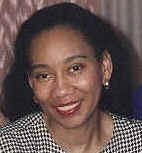|
July 2001 Issue |
|
Vol. 1 No. 3 | |
| Home
Guest Columnist: Denise Turney Article by Lee E. Meadows
|
This month’s edition of LitLine begins a
writer’s contest sponsored by several of the literary industry’s
newest writers. Sponsor
authors are Lee Meadows, Idelia Phillips. Sibylla Nash, Nora DeLoach,
Nika Beamon, Panderina Soumas, Carl Lowe, Keith Stewart, Vincent
Alexandria, April Smith Coley and Brian Egeston. The contest rules are available in this
issue of LitLine and will be strictly enforced.
The contest is an opportunity for non-published writers and poets
to showcase their writing talent. Also, this edition of LitLine has a new
feature: CD of the Month
and Question of the Month. Check
out those new features. I want to express my continued
appreciation to Reverend Cornelius R. Wheeler, Lee Meadows, Lisa R.
Cross and Adam Powell for their ongoing contributions to LitLine.
Your support and participation are invaluable, and one day, I’m
going to thank you all with more than just words. For all the aspiring writers and poets who
have contacted me, please continue to read LitLine for industry and
market news and overall helpful hints and information that we hope will
assist you in some way. God bless, much success and good luck to
everyone who enters the contest!  The
Two Ps that Guarantee Writing S-u-c-c-e-s-s The
Two Ps that Guarantee Writing S-u-c-c-e-s-sBy Denise Turney You can support LitLine by sponsoring the online newsletter monthly or annually. You can conveniently pay online by using the buttons below. Please give use your feedback on LitLine by email at: litline@storytale.com. Pay online:
|
 Rev.
Cornelius R. Wheeler Rev.
Cornelius R. WheelerCo-Pastor, Vermont Avenue Baptist Church Washington, DC
In
February of 2001, on Interstate 95, right outside Washington, DC, a
traffic pileup included more than 120 autos, injured dozens and,
tragically, took one life. Traffic
accidents are not usually headline news, but the enormity and the
circumstances of this particular disaster caught everyone’s attention.
It seems as though, in a light snowstorm, an unusually large
number of cars were, 1) going too fast, and 2) following too closely.
As the speeding lines of traffic crested a slight hill, they
approached too quickly upon a stalled truck.
The first cars to reach the truck veered to the side to miss it;
those who followed found themselves crashing into those that had veered.
The next couple of minutes were, as you can imagine, filled with
vehicle after vehicle, driver after driver careening into those who just
moments before were cruising along the highway.
The cost, unfortunately, was high, the ultimate in one case, all
because folk were going too fast and following too closely.
The
framework, from which the contemporary African-American sleuth is drawn,
can be traced to the beginning of the 20th century. Author
Pauline Hopkins ‘locked room’ mystery featured socialite Talma
Gordon(1900), J.E. Bruce introduced international detective Sadipe
Okukenu in the Black Sleuth (1907)
and Rudolph Fisher teamed Professional Homicide detective Perry Dart
with amateur sleuth Dr. John Archer in the all black Harlem classic, The Conjure Man Dies (1932). These early century authors were drawn
to and influenced by the classical detective novels popularized in the
latter 19th century. They went against the grain of
conventional literary depiction of African-American characters by
avoiding the ‘bug-eyed’, ‘teeth-chattering’, ‘dialect
speaking’ and ‘cringing helpless’ peripheral characters used
primarily as comic relief or as a disposable murder in the detective
novels of that period. Their stories moved the African American
protagonist into the central core of the story as both detective and
social commentator. In doing so, the first archetypes for
African-American sleuths, both amateur and professional, filled a
literary vacuum by silently shifting the reader’s prevailing
perceptions of literary stereotypes. African –American characters were
rarely depicted as fully human, though oftentimes exceedingly humane.
Their roles as servants, sub-servants, and criminally motivated appeased
both narrator and reader by insuring a perceived social consistency
between the written word and the physical world.
|
Our
Sponsors Book
of the Month CD
of the Month Web
Information Literary
Contest Question
of the Month |


 From
the Publisher/Editor
From
the Publisher/Editor 